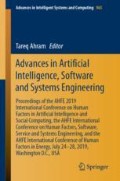Abstract
As the field of Task Analysis (TA) is still fragmented and poorly understood by many, a software-tool, build by HFC Human-Factors-Consult GmbH, has been developed for easy and better TA. Purpose of the study is to evaluate the efficiency, quality and effectiveness of TA performed with the support of this software-tool. In the experiment, 36 participants conducted a total of two hierarchical-TA (HTA) on two given tasks, once using the new software-tool and the second using fundamental methods i.e. paper-&-pencil. The results indicated that the software-tool aided participants in producing good-quality analysis, provided support and guidance during the HTA-process and helped in maintaining a consistent performance-level in terms of both quality and effectiveness. The findings resulted in identifying the strengths and acknowledging the shortcomings of the new software-tool, thus providing a concrete direction for further improvements. Moreover, the study adds to literature by developing checklists to make this assessment, which in turn proposes components that characterizes a good TA.
Access this chapter
Tax calculation will be finalised at checkout
Purchases are for personal use only
Notes
- 1.
The NASA-TLX is a multidimensional, subjective rating procedure used to assess workload [23] which was developed by the human performance group at NASA Ames Research Center.
- 2.
The SUS System Usability Scale is a simple ten-item Likert scale that provides a global view of subjective assessments of usability.
References
Annett, J., Stanton, N.A. (eds.): Task Analysis. CRC Press, London (2014)
Hollnagel, E.: Task analysis: why, what, and how. In: Handbook of Human Factors and Ergonomics, 3rd edn., pp. 371–383. Wiley, Hoboken (2006)
Stanton, N.A., Salmon, P.M., Rafferty, L.A., Walker, G.H., Baber, C., Jenkins, D.P.: Human Factors Methods: A Practical Guide for Engineering and Design. CRC Press, London (2017)
Bass, A., Aspinall, J., Walters, G., Stanton, N.: A software toolkit for hierarchical task analysis. Appl. Ergon. 26(2), 147–151 (1995)
Annett, J., Duncan, K.D., Stammers, R.B., Gray, M.J.: Task Analysis. HMSO, London (1971)
Diaper, D., Stanton, N.A. (eds.): The Handbook of Task Analysis for Human-Computer Interaction. Lawrence Erlbaum Associates Inc. Publishers, Mahwah (2004)
Crystal, A., Ellington, B.: Task analysis and human-computer interaction: approaches, techniques, and levels of analysis. In: AMCIS 2004 Proceedings, 391, New York (2004)
Felipe, S.K., Adams, A.E., Rogers, W.A., Fisk, A.D.: Training novices on hierarchical task analysis. In: Proceedings of the Human Factors and Ergonomics Society Annual Meeting, vol. 54, no. 23, pp. 2005–2009. Sage, Los Angeles, California (2010)
Shepherd, A.: Hierarchial Task Analysis. CRC Press, London (2014)
Hone, G., Stanton, N.: HTA: the development and use of tools for hierarchical task analysis in the Armed Forces and elsewhere. Human Factors Integration Defence Technology Centre (2004)
Stanton, N.A., Salmon, P., Harris, D., Marshall, A., Demagalski, J., Young, M.S., Waldmann, T., Dekker, S.: Predicting pilot error: testing a new methodology and a multi-methods and analysts approach. Appl. Ergon. 40(3), 464–471 (2009)
Hugo, J.: An integrated suite of tools to support human factors engineering. In: NPIC & HMIT 2015. Charlotte, NC (2015)
Kieffer, S., Batalas, N., Markopoulos, P.: Towards task analysis tool support. In: Proceedings of the 26th Australian Computer-Human Interaction Conference on Designing Futures: the Future of Design, pp. 59–68. ACM, New York (2014)
Dixon, K., Reed, Y., Reid, J.: Supporting teacher educator professional learning about assessment: insights from the design and use of a task analysis tool in a first-year BEd programme. S. Afr. J. High. Educ. 27(5), 1099–1117 (2013)
Promann, M., Zhang, T.: Applying hierarchical task analysis method to discovery layer evaluation. Inf. Technol. Libr. 34(1), 77–105 (2015)
Stanton, N.A.: Hierarchical task analysis: developments, applications, and extensions. Appl. Ergon. 37(1), 55–79 (2006)
Roth, E.M., O’Hara, J., Bisantz, A., Endsley, M.R., Hoffman, R., Klein, G., Militello, L., Pfautz, J.D.: Discussion panel: how to recognize a “good” cognitive task analysis? In: HFES (ed.) Proceedings of the Human Factors and Ergonomics Society Annual Meeting, vol. 58, No. 1, pp. 320–324. Sage, Los Angeles, California (2014)
Onnasch, L., Bürglen, J., Tristram, S., Kolrep, H.: Break it down! a Practitioners’ software tool for human factors task analysis and human error identification. In: Proceeding of 32nd Conference of European Association for Aviation Psychology – Thinking High AND Low: Cognition and Decision Making in Aviation. Cascais, Portugal (2016)
Bisantz, A.: Can (and should) i use these results? Six factors in CTA quality. In: Roth, E.M., et al.: Discussion Panel: How to Recognize a “Good” Cognitive Task Analysis? In: HFES, vol. 58, No. 1, pp. 320–324. Sage, Los Angeles, California (2014)
Klein, G.: Does a CTA study generate insights? In: Roth, E. M., et al.: Discussion Panel: How to Recognize a “Good” Cognitive Task Analysis? In: HFES, vol. 58, No. 1, pp. 320–324. Sage, Los Angeles, California (2014)
Brooke, J.: SUS-a quick and dirty usability scale. Usability Eval. Ind. 189(194), 4–7 (1996)
Jordan, P.W.: An Introduction to Usability. CRC Press, London (1998)
Hart, S.G.: NASA Task load Index (TLX), vol. 1.0, Paper and pencil package. Ames Research Center, California (1986)
Acknowledgement
The author is responsible for the content of this publication. We thank all participants for their time and effort and anonymous reviewers for their constructive comments. We would also like to show our gratitude to HMKW University of Applied Sciences for Media, Communication and Management, Berlin, for their support.
Author information
Authors and Affiliations
Corresponding author
Editor information
Editors and Affiliations
Rights and permissions
Copyright information
© 2020 Springer Nature Switzerland AG
About this paper
Cite this paper
Upadrasta, V., Kolrep, H., Oehme, A. (2020). Improve Your Task Analysis! Efficiency, Quality and Effectiveness Increase in Task Analysis Using a Software Tool. In: Ahram, T. (eds) Advances in Artificial Intelligence, Software and Systems Engineering. AHFE 2019. Advances in Intelligent Systems and Computing, vol 965. Springer, Cham. https://doi.org/10.1007/978-3-030-20454-9_38
Download citation
DOI: https://doi.org/10.1007/978-3-030-20454-9_38
Published:
Publisher Name: Springer, Cham
Print ISBN: 978-3-030-20453-2
Online ISBN: 978-3-030-20454-9
eBook Packages: EngineeringEngineering (R0)

